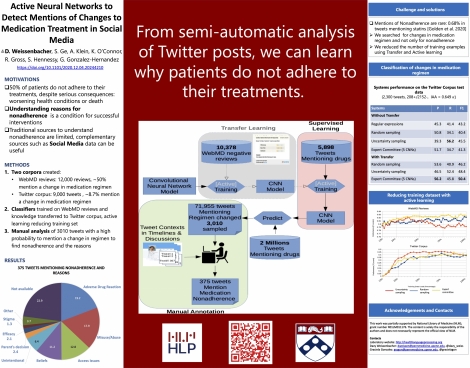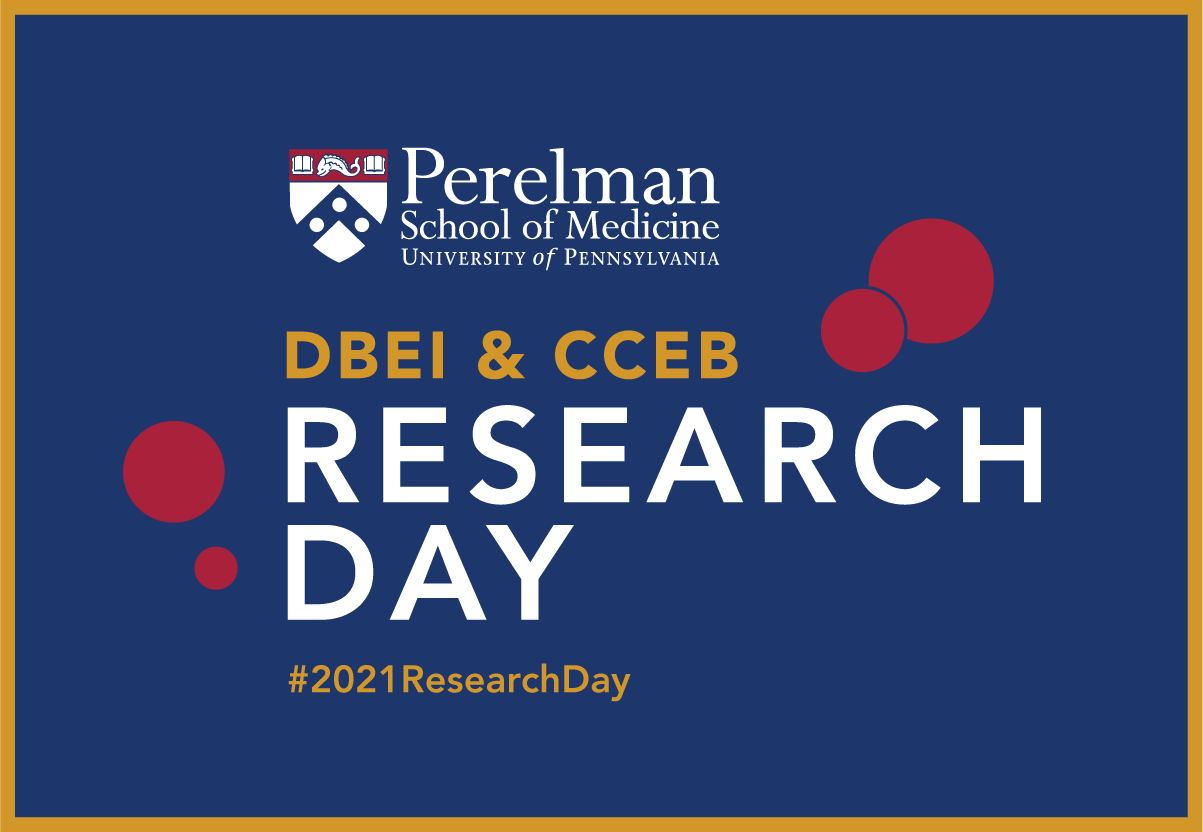Davy Weissenbacher
Active Neural Networks to Detect Mentions of Changes to Medication Treatment in Social Media
Abstract
Objective: We address a first step towards using social media data to supplement current efforts in monitoring population-level medication non-adherence: detecting changes to medication treatment. Medication treatment changes, like changes to dosage or to frequency of intake, that are not overseen by a physician are, by that, non-adherence to medication. Despite the consequences, including worsening health conditions or death, 50% of patients are estimated to not take medications as indicated. Current methods to identify non-adherence have major limitations. Direct observation may be intrusive or expensive, and indirect observation through patient surveys relies heavily on patients’ memory and candor. Using social media data in these studies may address these limitations.
Methods: We annotated 9,835 tweets mentioning medications and trained a convolutional neural network (CNN) to find mentions of medication treatment changes, regardless of whether the change was recommended by a physician. We used active and transfer learning from 12,972 reviews we annotated from WebMD to address the class imbalance of our Twitter corpus. To validate our CNN and explore future directions, we annotated 1,956 positive tweets as to whether they reflect non-adherence and categorized the reasons given.
Results: Our CNN achieved state-of-the-art performance with 0.50 F1-score. The manual analysis of positive tweets revealed that non-adherence is evident in a subset with nine categories of reasons for non-adherence.
Conclusion: We showed that social media users publicly discuss medication treatment changes and may explain their reasons including when it constitutes non-adherence. This approach may be useful to supplement current efforts in adherence monitoring.
Keywords
Social Media, Pharmacovigilance, Medication Non-Adherence, Active Learning, Text ClassificationCommenting is now closed.
About Us
To understand health and disease today, we need new thinking and novel science —the kind we create when multiple disciplines work together from the ground up. That is why this department has put forward a bold vision in population-health science: a single academic home for biostatistics, epidemiology and informatics.
© 2023 Trustees of the University of Pennsylvania. All rights reserved.. | Disclaimer



